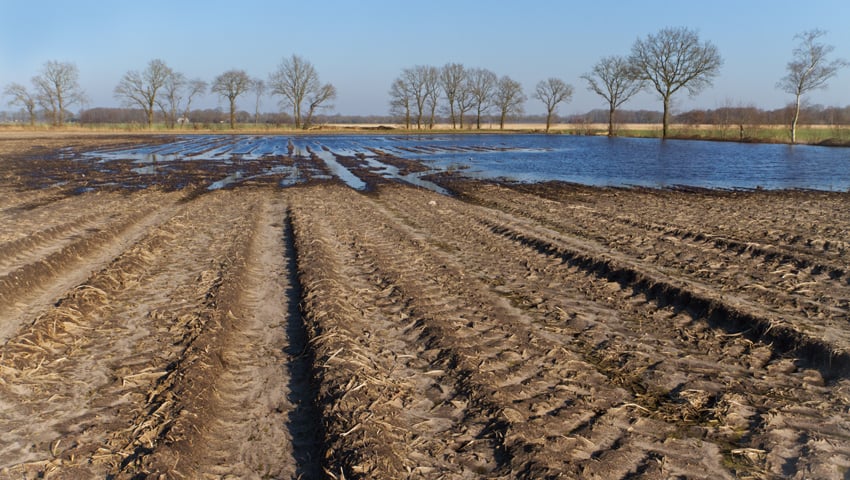SOIL is vital to sustaining life on Earth, producing our food and sustaining rich ecosystems. Yet in recent years soil in the UK has become heavily degraded through over-use, erosion, compaction, or pollution.
Today, on World Soil Day, Environment, Food and Rural Affairs Committee (EFRA) has published a report to conclude its inquiry into soil health.
The report provides recommendations for government after the committee’s inquiry examined how the government can “turn the tide on soil degradation”.
The Committee’s report calls for soil health to be put on the same footing as water and air quality within government policy, and calls for statutory targets on soil health, alongside the existing water and air quality targets, by 2028. This will need to be underpinned by data, agreed soil health indicators and widely accepted definitions of ‘sustainable soil management’.
The Soil Association has welcomed the warning, but wants to see stronger action.
Soil Association Head of Farming Policy, Gareth Morgan, said, “Soil is so much more than the dirt beneath our feet – life on earth depends on it as much as it depends on water and air. We cannot produce food without it, a quarter of Earth’s species live in the soil, and it stores more carbon than the atmosphere.
“But British soils are in crisis and a rapid shift to a soil-centred farming system is urgently needed following decades of intensive farming practices that have resulted in soil erosion and loss of soil organic matter. As we told this inquiry when giving evidence, there is no time to lose.
“The Environment, Food and Rural Affairs Committee’s new report issues a strong warning about declining soil health, but its proposals lack urgency. The recommendations to invest more in sustainable farming policies need to be enacted but stronger regulation will also be needed to put a stop to practices that are harming soils.
“With healthier soils on organic farms, the government must prioritise all nature-friendly, agroecological farming, which is the most evidenced based approach for saving our degrading soils.”
The Committee has emphasised that soil health monitoring must be on a continuous, ongoing basis, not a one-off event, and should be on the same scale as funding for the country’s other critical assets – water and air.
The report calls on the Government to fund the widespread, standardised testing of soil through its Environmental Land Management (ELM) schemes and to work with industry on an agreed set of metrics of soil health by 2024 as well as definitions of sustainable farming. The Committee also recommends that Government should aim ‘for nearly all farmers and growers (90% or more) to be part of an ELM scheme by 2040’.
The Committee calls on the Government to make sure that sustainable farming is profitable farming, by addressing unsustainable supply chain demands and critically by ensuring that the ELM schemes pay attractive rates for a wide range of ambitious soil-improvement measures.
While the report highlights the importance and the potential of ELMs to improve soil health, it points out that ELMs alone “cannot be the whole story”. The Committee recommends the introduction, by 2035, of a regulatory framework to focus on preventing soil degradation and contamination across various sectors, including construction and planning, as well as agriculture. With soil waste making up 58% of tonnage received by landfills, MPs recommend that these laws should aim to prevent soil waste ending up in landfill.
Chair of the Environment, Food and Rural Affairs Committee, Sir Robert Goodwill, said, “Sustaining and restoring the country’s soil is essential for our ability to grow food and protect this vital habitat. Threats to soil health are in turn threats to our domestic food supply. For too long soil has been treated differently to water and air, but our committee’s report says that it is about that time that soil health is considered on an equal footing with these other critical assets.
“Problems of soil degradation, contamination and soil waste can be addressed through the use of sustainable soil management practices and now is the time for the government to lead on this.
“The Government’s ELM schemes are a good start, but we call on the Government to make these schemes more ambitious, aiming to get nearly all farmers involved and ensuring that they adopt a variety of sustainable soil management practices across their land. We also encourage the Government to use ELMs to fund the collection of the data we desperately need to understand our soils.
“It is not only farmers who have an impact on our soils, but other actors in various sectors. Our report recommends that Government introduces regulations to protect soils across England, to ensure that everyone is playing their part in protecting soil health.”
Read the EFRA Committee soil report here
